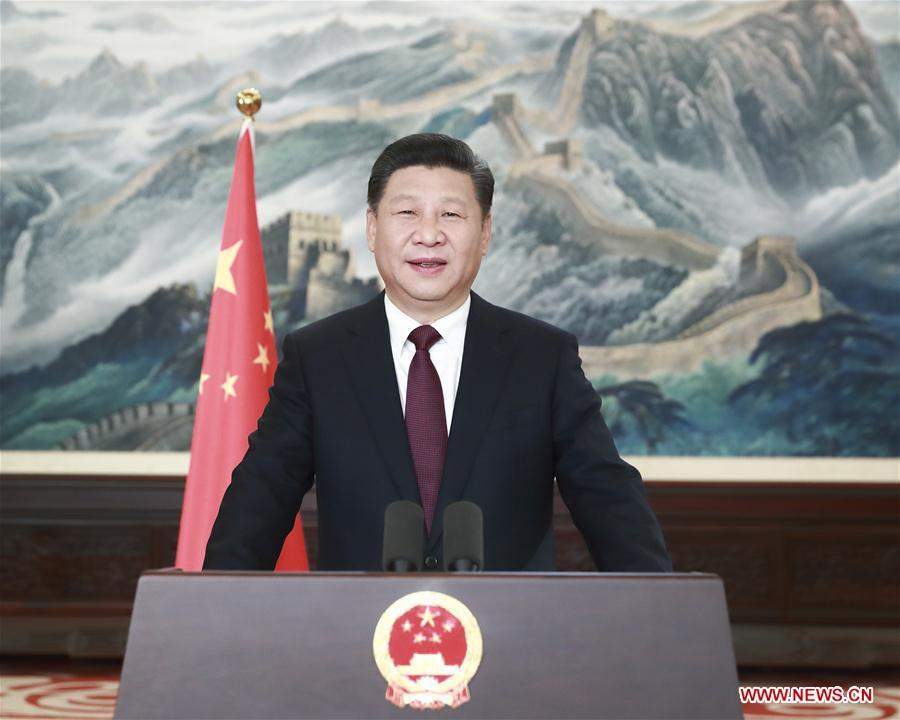
The 47th World Economic Forum (WEF) meeting will take place from 17 to 20 January, coinciding with Donald Trump’s inauguration as US President.
The annual event in Davos, Switzerland attracts some of the world’s most prominent world leaders, counting former British prime minister David Cameron and the US president Barack Obama among previous attendees.
This year, for the first time in history, a Chinese president will be in attendance.
Xi Jinping will not be joined however by the German chancellor Angela Merkel, who will miss the WEF for the second year running.
Europe will still be represented by other figureheads including Mark Rutte of the Netherlands and Enda Kenny of Ireland. UK PM Theresa May is also on the guestlist, a source close to the event revealed exclusively to Verdict.
What’s Davos about this year?
This year’s event, entitled “Responsive and Responsible Leadership,” will focus on strengthening global leadership and restoring a sense of shared identity in the wake of divisive issues such as the UK’s vote to quit the European Union and Trump’s impending presidency.
How well do you really know your competitors?
Access the most comprehensive Company Profiles on the market, powered by GlobalData. Save hours of research. Gain competitive edge.

Thank you!
Your download email will arrive shortly
Not ready to buy yet? Download a free sample
We are confident about the unique quality of our Company Profiles. However, we want you to make the most beneficial decision for your business, so we offer a free sample that you can download by submitting the below form
By GlobalDataOther key concerns at the meeting include how to revitalise economic growth, reform capitalism and prepare for the so-called fourth industrial revolution.
Professor Jonathan Portes, a senior fellow of UK in a Changing Europe, an initiative promoting high-quality research into Britain’s changing relationship with the EU told Verdict that it remains to be seen whether or not the politicians, corporate executives, and public intellectuals going to this year’s WEF will be able to confront such challenges.
“Restoring shared identity and reforming capitalism are urgent priorities. Whether the Davos elite are the right people to do so is less clear.”
Verdict has taken a look at the five leadership priorities at this year’s event:
1. What is the fourth industrial revolution and how can we prepare for it?
In an increasingly connected and globalised world, it is imperative to keep up with massive technological advances including driverless cars, 3D-printing, nanotechnology, and robots.
These scientific breakthroughs make our lives easier, but also present us with complex new challenges. Will robots become so sophisticated that they will soon be able to replace humans in the job market? Will driverless cars really reduce road deaths?
Perhaps most importantly, the pace of technological change makes us more vulnerable to cyber attacks. The recent infiltration of the US Democratic Party’s email servers is a case in point.
2. Strengthening global leadership
Championing liberal values is more important than ever given the surge in support for populist movements, evident across the world.
Donald Trump was elected president of the US and Marine Le Pen, leader of the far-right National Front has rallied considerable support for the French presidency. Geert Wilders, an anti-Muslim demagogue could win the general election in the Netherlands in March.
These are just some of the threats which can only be contained by strong global groupings made up of like-minded individuals who are willing to cooperate in the name of peace and prosperity.
3. Revitalising economic growth
With president Trump threatening to introduce protectionist tariffs, fears are widespread that such a position could have a negative effect on global economic growth. And China’s economic growth could slow to 6.5 percent this year from about 6.7 percent, according to Reuters.
“Permanently diminished growth translates into permanently lower living standards: with five percent annual growth, it takes just 14 years to double a country’s GDP; with three percent growth, it takes 24 years,” wrote Klaus Schwab, founder and executive chairman of the WEF on Monday.
“If our current stagnation persists, our children and grandchildren might be worse off than their predecessors.”
What’s more, with a fast growing population, it could become increasingly difficult to create enough jobs to keep up with demand.
4. Reforming market capitalism
The capitalist system as it stands today produces serious wealth inequality. According to US census data on poverty in 2012 46.2m people live below the poverty line.
In the UK, the Equality Trust, a campaign group committed to reducing income inequality estimates that households in the bottom 10 percent of the population earn on average a net income of £9,277.
This year’s WEF will discuss how to tackle the negative effects of capitalism.
5. Shared identity
Divisions in society along social, economic and political lines are becoming more pronounced.
Trump exploited these divisions in his election campaign in the US, particularly through his strong anti-migrant rhetoric and hatred for the so-called liberal elite.
Creating an us versus them dynamic also contributed to the leave campaign victory in the EU referendum. An emphasis on how to foster unity will be a key focus at the WEF 2017.
Portes adds:
“The priorities, both in the UK and the rest of Europe should be reclaiming themes of fairness and identity from those who would hijack them by appealing to xenophobia, racism and less pernicious but also worrying simplistic and ill-informed approaches to economic management.”







